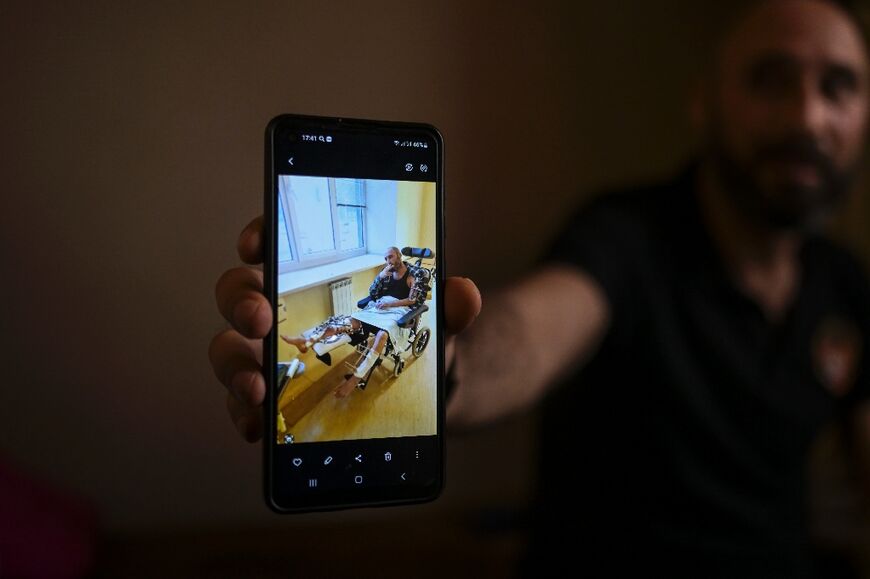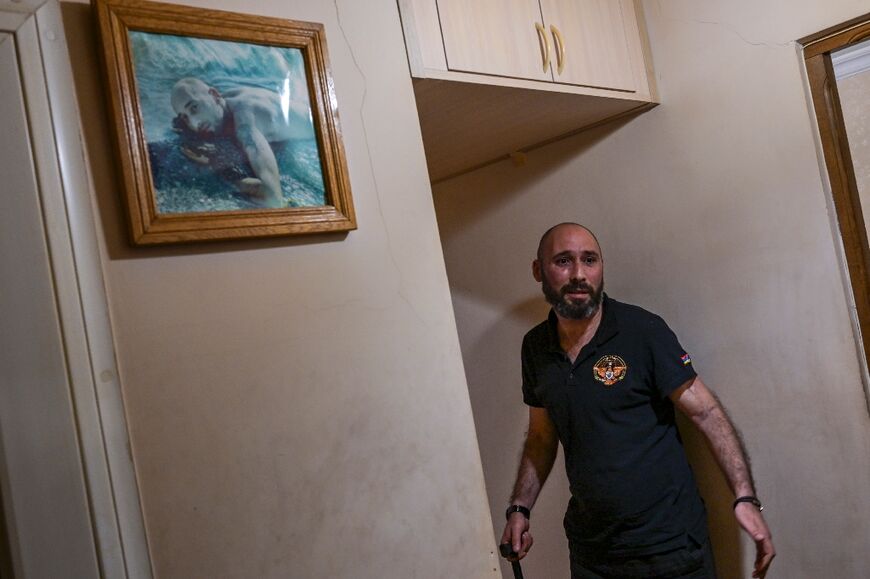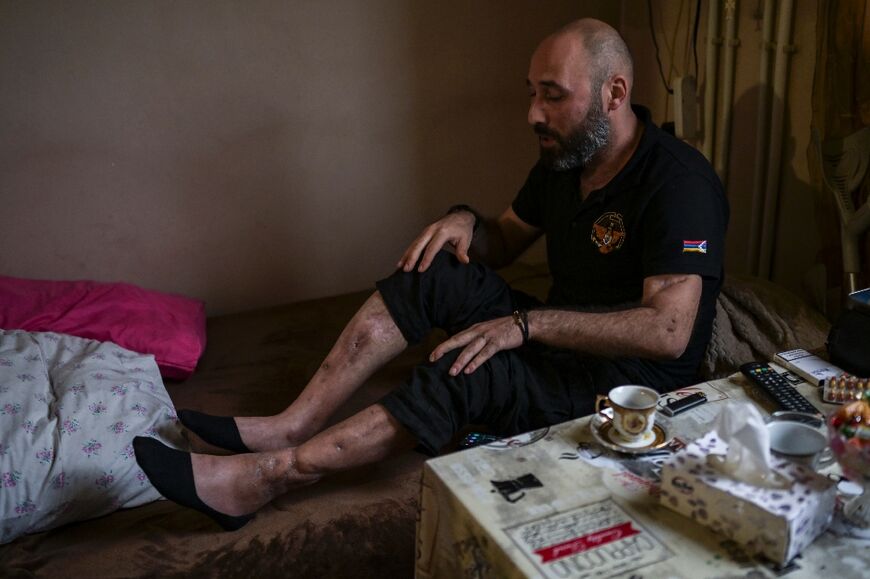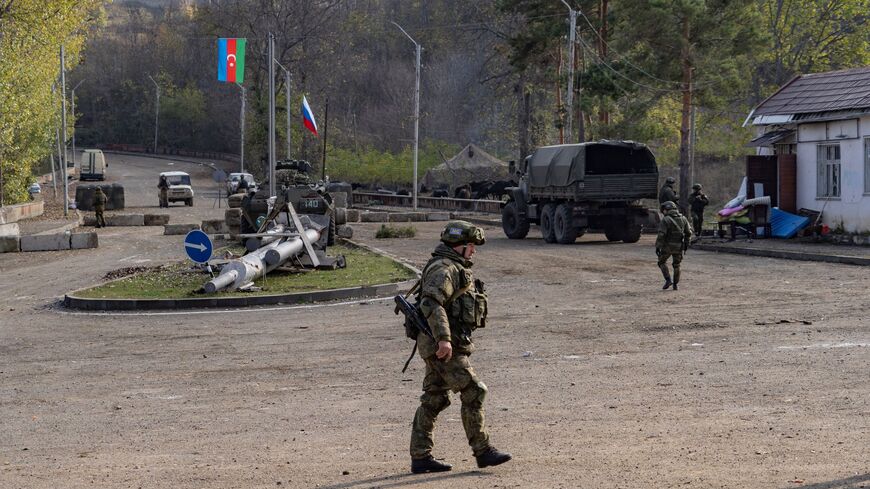Wounded Armenian veteran ready to fight again for Karabakh
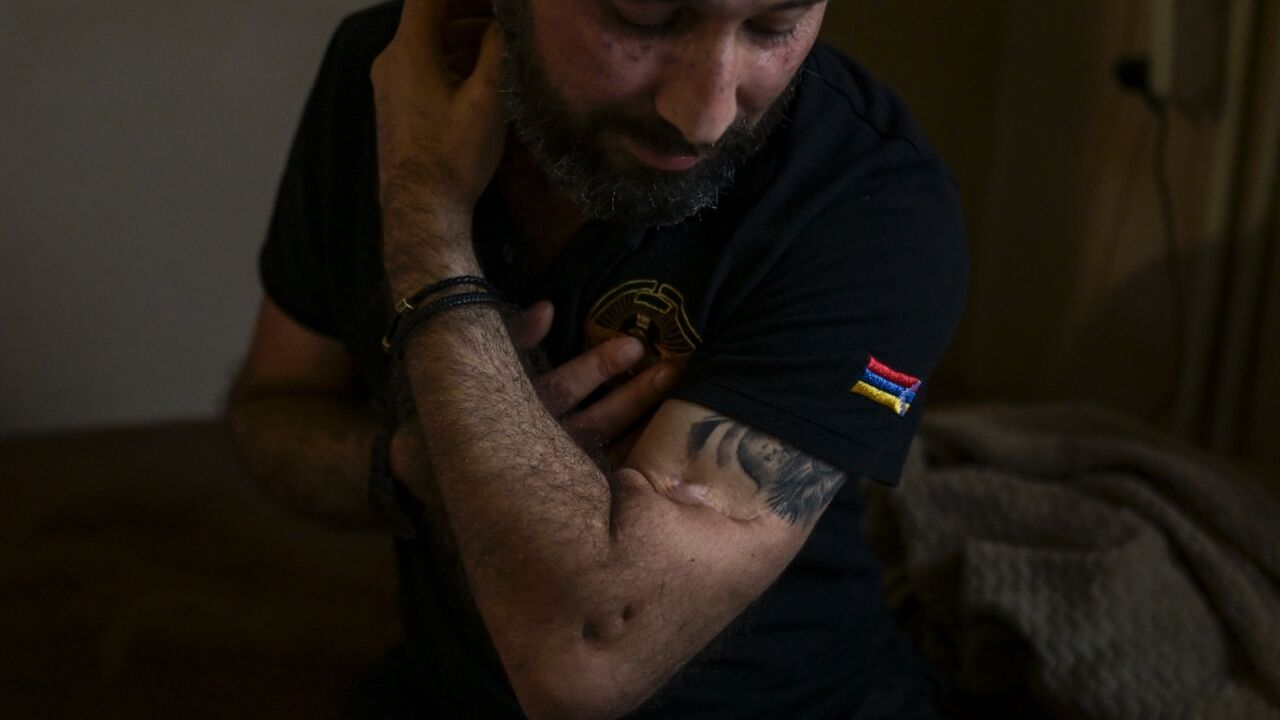
Nagorno-Karabakh has laid down its arms but Armenian Sergei Davidyan is having none of it.
The enclave taken over by Azerbaijan is the homeland of his ancestors, the place where he grew up and the land he was wounded fighting to defend during the 2020 war that Armenia lost.
In a small flat which he shares with his mother in the suburbs of Yerevan, the 39-year-old veteran struggled to find the right words to express his indignation.
"The loss of Karabakh... I can't accept it," he said, wearing a black polo shirt emblazoned with the self-proclaimed republic's flag.
Davidyan's left arm bears a large scar and his legs were shredded by shrapnel from a shell or a drone that dropped out of the sky on October 13, 2020.
"I couldn't feel a thing. Everything was numb. My arm was almost cut off," he said.
He remembered asking for some whisky and was then in a coma for nine days and spent a total of three months in hospital.
He now needs a crutch to walk, lives on an invalidity pension and relies on daily assistance from his mother.
- 'Take up arms again' -
Despite his injuries and against all the odds, Davidyan said he was ready to "take up arms again" and refused to feel pity for the tens of thousands of ethnic Armenians who fled Karabakh after a rapid offensive by Azerbaijan last month.
"They should have stayed and fought," he said.
"This is our land," he said, remembering his childhood growing up in the mountains.
"I scratched my initials on the trees there," he said.
Davidyan was actually born in Baku, the capital of Azerbaijan.
At the time, Armenia and Azerbaijan were both part of the Soviet Union. As that empire gradually disintegrated from the end of the 1980s, antagonism grew.
In February 1988, a pogrom of ethnic Armenians in the Azerbaijani city of Sumgait spread terror in the region.
Davidyan's family no longer felt safe in Azerbaijan.
"We had to leave Baku," his mother Nadezhda said, crying.
"The people we were living with turned their backs on us and threw stones at us."
They moved to Stepanakert, which became the capital of Nagorno-Karabakh in 1991 when the majority ethnic Armenian enclave declared its independence.
Those years saw the first Karabakh war (1988-1994), which Armenia won.
The war killed 30,000 people, led to massive population movements of Azeris and Armenians, and left a lasting impression on young Davidyan.
"When I was eight years old, a dog brought back a human foot," said Davidyan, who remembers watching the fighting from a roof "like in a film".
- 'Armenian resistance' -
Even after the end of the war, life in Karabakh was tinged with bitterness as he remembers being treated "like a foreigner" by other children.
"I only spoke Russian. I didn't know a word of Armenian," he said.
But he grew attached to the enclave and his grandmother would tell him that was where the family was originally from.
In 2008, he joined the Karabakh army in the same year that his father retired with the rank of colonel.
His father has since passed away and his widow shows off a photo of him in uniform covered in military honours.
Davidyan fought twice -- in 2016 and in the 44-day war in 2020 between Armenia and Azerbaijan in which he was injured.
Nagorno-Karabakh has now announced its dissolution by January 1, 2024.
Davidyan calls for support from the "Christian world", putting a religious spin on a complex stand-off with mainly Shia Muslim Azerbaijan.
There is little hope of re-capturing Karabakh but the former soldier is sure: "There will be an Armenian resistance for 10 years, 100 years, 1,000 years."


